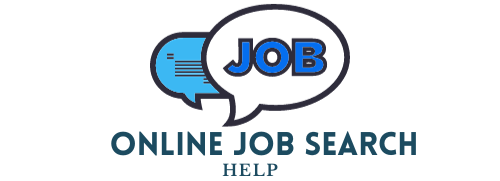Is It Okay To Take Time Off Between Jobs?
Take time off between jobs! One is very eager to join when one gets a fresh position. Although this is an excellent method to assist your new employer, you might want to think about taking some time off before starting immediately. Take advantage of this time to relax and recharge before accepting a new position. We address some of the most frequently asked questions about taking time off between jobs and provide some tips on how to take time off correctly in this post.
Table of Contents
Should You Take Time Off Between Your Jobs?

Many individuals choose to begin their new career as soon after they’ve been hired as possible because they need a steady income. Another reason why people feel compelled to start work right away is that they want to make a good impression on their new employer. Taking time off in between jobs can be quite beneficial for your health if you can afford to go without a few days or weeks of pay and believe that your new employer is sympathetic to this transition.
Between Jobs, Why Should You Take Time Off?
Starting a new job may be stressful for many of us. Getting to know coworkers, learning new procedures, and undergoing training might leave you exhausted. Consider setting aside some time off before your first day. Taking time off between employment allows you to unwind and recuperate. It also ensures that you have adequate time to get ready for your new career.
You can take a vacation, see family, make plans to hang out with friends, and unwind during a pause in your employment. Taking a break may assist your mental health — as well as help you return to work with greater focus and enthusiasm.
Advantages Of Taking Time Off Between Jobs

Why you should take time off between jobs? Taking a break between jobs has several advantages, whether you’re switching occupations within the same sector or moving to a different line of work.
An Opportunity To Take Extended Time Off
In the first months of employment, some companies try to prevent new recruits from taking a vacation. And at many jobs, new employers have little PTO built up. This implies that your time between opportunities may be your last for a long while to enjoy a well-deserved break.
You may use that time to travel, invest in yourself, or simply relax. It’s possible that scheduling some time off before your start date will assist you to avoid burnout at your new workplace.
Chance To Pursue Personal Projects And Interests
Taking time off between jobs allows you to devote your attention to personal projects or passions. Learning how to bake, completing a watercolor painting, or beginning work on a novel is just a few of the hobbies that may be completed during this period.
A vacation might be a good opportunity to do some of the little tasks that tend to fall to the bottom of people’s to-do lists, such as updating your interior décor, beginning a new exercise program, or organizing.
Ability To Fully Decompress
Taking time off between jobs may help you unwind. Many people are exhausted by their present work arrangements. Rest allows us to recharge and focus our efforts on things other than our careers. You might, for example, enhance your self-care and mental health during a vacation.
Breaks also give you the chance to reconnect with family and friends. Taking time off may help you get back to work more refreshed and productive, which is good for your company.
Use The Time For Self-Reflection
A vacation between jobs provides a wonderful opportunity to reflect back on how far you’ve progressed. Self-reflection allows us to gain perspective on our lives, whether we’re looking at personal or professional accomplishments.
The time between jobs also allows you to consider your future. What long-term goals do you have for your new profession? In five years, where do you want to be?
You may jump-start your new career by taking a step back from the daily grind to think about it.
How You Can Negotiate Time Off Between Jobs
If you want to take time off between jobs, here’s how to let your new employer know:
Start Date Planning
Consider when you want to start working as an employer expresses interest in hiring you. You have more power in this decision if you tell them your start date rather than asking them when you should begin. Consider how long it will take for you to get paid again and how much time you’ll need for extracurricular activities.
Explain Your Intentions
If you are concerned about impressing your new employer and taking some time off between jobs, keep in mind that most employers realize that starting a new job is a major change. If you convey your intentions clearly, they are likely to grasp why you need to take a break. You might say, for example, that you worked hard to leave your previous team in good shape when you departed and need some time off. This indicates that you respect the firms for which you work and have a strong sense of ethics. Take time off between jobs.
Maintain Prior Plans Or Commitments
It’s a fantastic time to make arrangements with others if you’re looking for a new position. When discussing your starting date with your new employer, let them know that you have prior commitments and can begin as soon as possible. Many employers understand that you have a life outside of work and are eager to grant you the time you require. If not, this may be an indication that taking leave from your current job might be tough.
Pre-Negotiate Vacation Days
There may be times when an employer needs you to start working right away. They might need you to get trained by the individual who will be replacing your position or they may have a limited time frame in which they need your help finishing a project, for example. If you find yourself in one of these situations, see if you can negotiate a holiday early on. When things quiet down or after you’ve completed training, they may be compliant. Take time off between jobs.
How Much Time You Should Take Off Between Jobs?
The duration of your absence depends on a variety of factors, including your employer, budget, and requirements. At the very least, plan for at least one week between jobs, take time off between jobs. It gives you time to unwind and get ready for your new job.
However, for some people, a long vacation may not be an option. If you rely on consistent pay, you might choose to start the new work sooner — particularly if you need to begin by a certain date to maintain health insurance coverage.
There may be times when individuals feel that they do not have enough structured time. However, nearly everyone can benefit from a break every now and again, if possible.
Similar Articles






